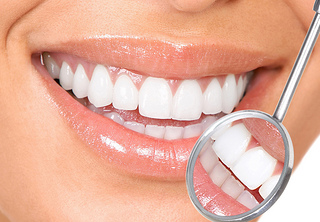Some Benefits to Giving Your Smile an Extra Boost
September 6th, 2016

For many individuals, autumn brings with it a number of new beginnings. Fall is the time that many people return to school, get back to the daily grind after an enjoyable summer, and even get married. As the weather cools down, it’s easier to enjoy the outdoors. And regardless of what fall-related events are on your calendar, Dr. Werner and our team at Erich M. Werner, D.D.S. know you’ll want to look your best.
One of the very first things that people will notice about you is your smile. And if yours has become less dazzling over the years — as teeth tend to do — you know how disappointing it is not to have the beautiful, pearly white look you’re used to.
Benefits to Teeth Whitening
For school-bound students and autumn brides, fall calendars are certainly filled. School and weddings call for large financial investments, loads of social interaction, and a large amount of personal dedication. So the last thing any bride or student wants to think about is a less-than radiant smile.
For many, there is a lack of confidence associated with their smile and investing in teeth-whitening techniques can be an effective solution. Studies suggest that not only can you experience a boost in your level of confidence, but also you may find that other advantages quickly fall into place.
A confident smile can affect:
- Personal and work-related relationships
- Job interviews and meetings
- Success when dealing with customers and potential clients
- Your personality and general happiness with your age
- Overall outlook on daily interactions
A Real Effect on Daily Living
All of these benefits can relate directly to how you see yourself. When you are insecure with something as prominent as your smile, it can affect the way that you handle your life, everything from social gatherings to professional situations.
Now is the perfect opportunity to rejuvenate your smile. With the right teeth-whitening product and regular hygienic practices, walking down the aisle or starting the new semester with the utmost confidence has never been easier.




 Website Powered by Sesame 24-7™
Website Powered by Sesame 24-7™